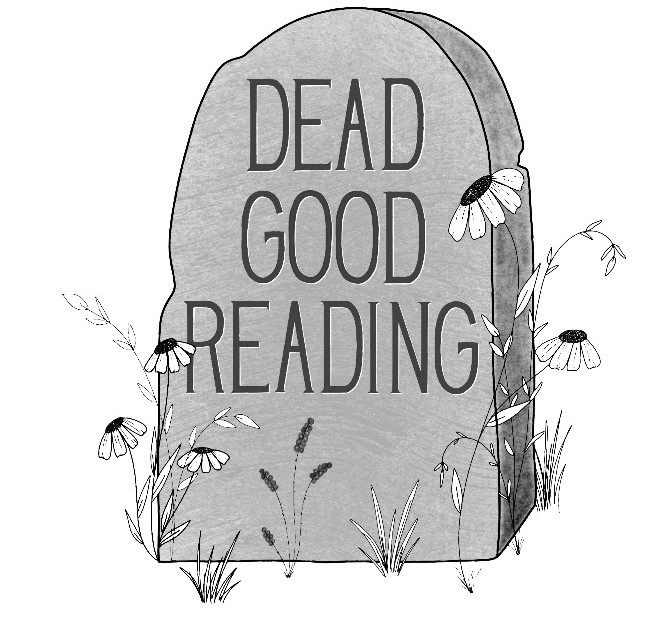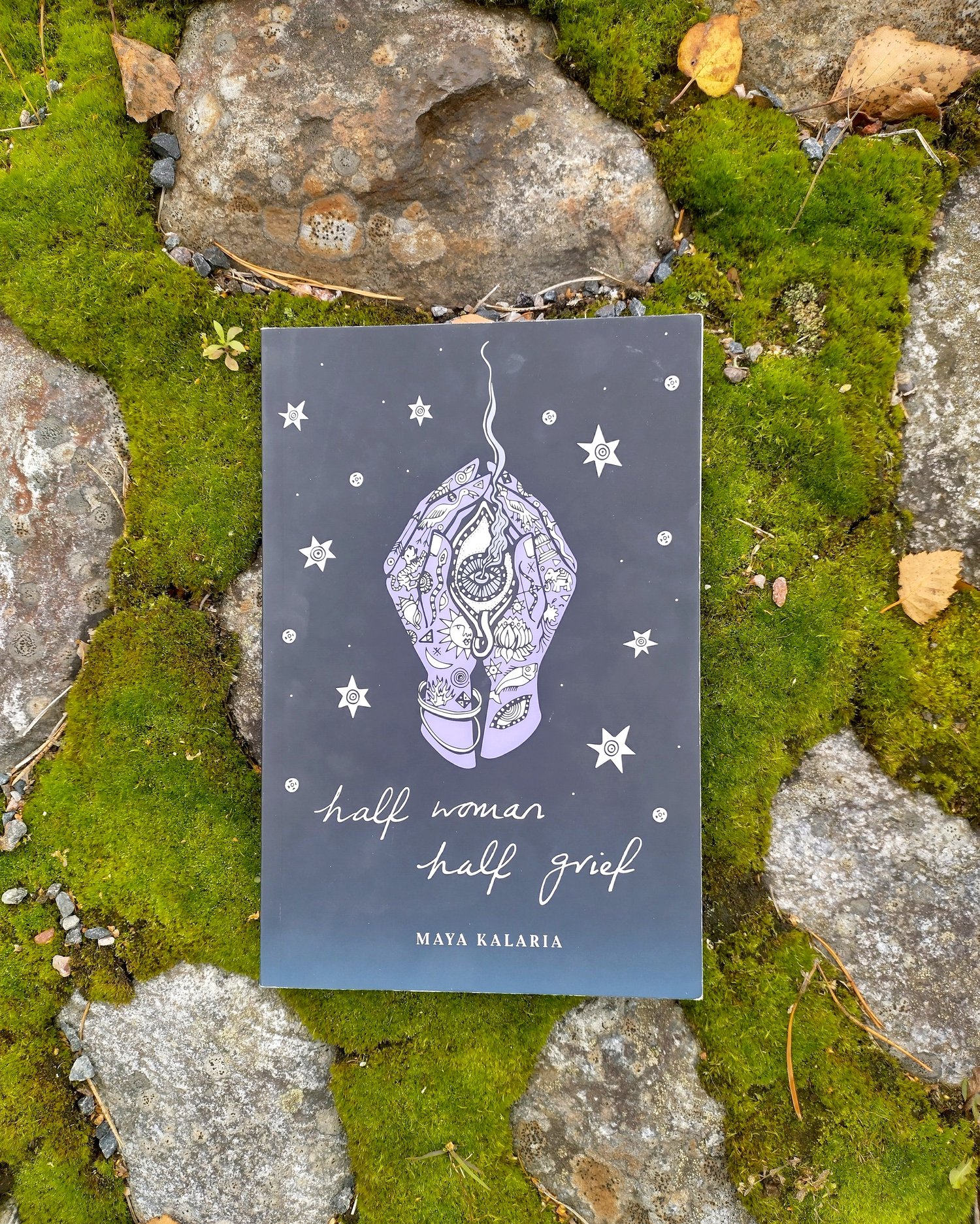Mother figures are important in people’s lives. They contribute to people’s sense of security and safety. Losing a mother, therefore, can be a rupture in this sense of security, and alter the course of life’s trajectory. Mothers help shape who you are as an individual, and nudge you towards potential futures. Maya Kalaria’s poetry collection Half woman, half grief (2020) shows first-hand how the death of a mother has long-term effects, especially when this loss occurred early in life. Kalaria’s mother died of leukaemia when she was just nine years old.
Kalaria’s collection starts with a brief life history, which only scratches the surface, to highlight just how impactful the death of her mother was. Not only did she have to learn how to live without her mother, little space was given to outwardly express what she was feeling. Furthermore, as her father entered a new relationship fairly quickly she was forced to become part of a ‘blended’ family. I need more evidence for this, but in the research I conducted for my master’s and subsequent anecdotal examples, I have found that fathers typically launch into new relationships swiftly, whereas mothers tend to stave off new relationships if the death is reversed. Kalaria’s biography shows that a death is not an isolated event, but has a knock-on effect on all aspects of live including, but not limited to moving house, rearranging households, and shuffling the self.
Kalaria, embodying the world as a brown woman, buried her grief and silenced her feelings. But below the surface a myriad of emotions were festering and Half Woman Half Grief is the result of four years of writing and allowing all of this to escape from the pen.
“Like most women, the darkness was not something I was ever encouraged to embrace within myself. The rage that had accumalated over the years of silence, however, was raw and overwhelming. I needed to express it, to get it out of my body, and for it to be witnessed by others”
— Half Woman, Half Grief (Kalaria, 2020 page 8)
The death of a mother early in live can have a tremendous affect. Mandy Gosling, interviewed for the Death Studies Podcast, has created an organisation ABC grief (Adults Bereaved as Children) to raise awareness and to give information to those bereaved as children. Gosling, like Kalaria, lost her mother aged 9 and both her lived experience as an adult bereaved as a child, and her professional experience as a psychotherapist unveil the deep impact early childhood mother loss can have. The exact amount is not known but it is estimated that 1 in 20 children will lose a parent early in life.
While little academic research has focused on this topic, it is works like Half Woman Half Grief that strongly demonstrate the ongoing impact and struggle of maternal death. In three sections The Unravelling, The Surrender and the Resurrection Kalaria vividly shows the tensions between past, present and future and how her mother (or her mother’s absence) is wrapped up in all of it.
The poem that hit me personally the hardest I will reproduce shortly. With few words, Kalaria carves out a story that is common for most bereaved people who find it difficult to make sense of grief and loss, as however comfortable we feel talking about death and loss, there are always parts that are left unsaid and instead dealt with internally.
“i dug a grave
inside myself
and buried
you in there.
i carved
your name
so deeply
into my heart
that i became
your living
breathing
memory”
— Half Woman Half Grief (Kalaria, 2020, page 44)
Every time I read the line ‘I became your living breathing memory’, I inhale deeply and think of my maternal grandmother and how she still lives through me. Inside me. (My own mother is still very much alive so to date she is still her own breathing memory). It is probably also a sign of getting older, but I have always struggled with poetry. If a novel, for example, uses a lot of poetry, I quite often skip those parts as I find them difficult to understand or relate to. Reading this poem by Kalaria, was one of the first times I could consciously feel myself respond to the words (and as I am writing this I am taking deep, measured breaths). I think this points to not just not understanding the meaning of the words or the intention of the author, but also to the burying that Kalaria describes; reading poetry and allowing yourself to feel all the feelings is a skill that needs to be developed.
Half Woman Half Grief is written for everyone who grieves (in other words: all of us), in whatever form and will appeal to anyone who wishes to be invited to feel big feelings and to sit with grief. It is a vulnerable and raw account. Currently Helsinki is a snow-covered environment, but as the green in the picture above reveals, I first read this collection a few months ago. It took me a while to sit down and write this blog, perhaps as December in many ways marks my personal relationship with death and loss, it is the time of year I can allow myself to be the most vulnerable and open about it. Buy the book if you want to experience this challenge yourself.
To learn more about Maya Kalaria visit her website.


Leave a Reply